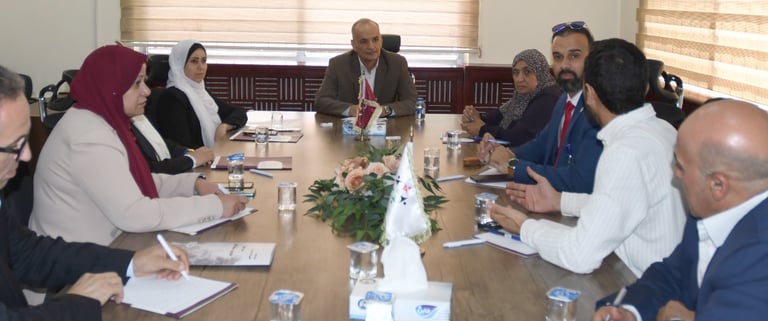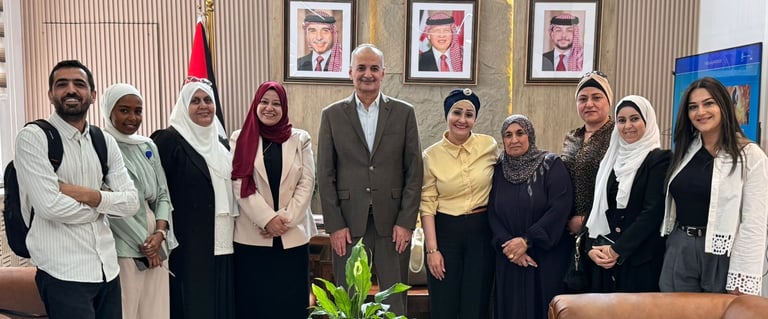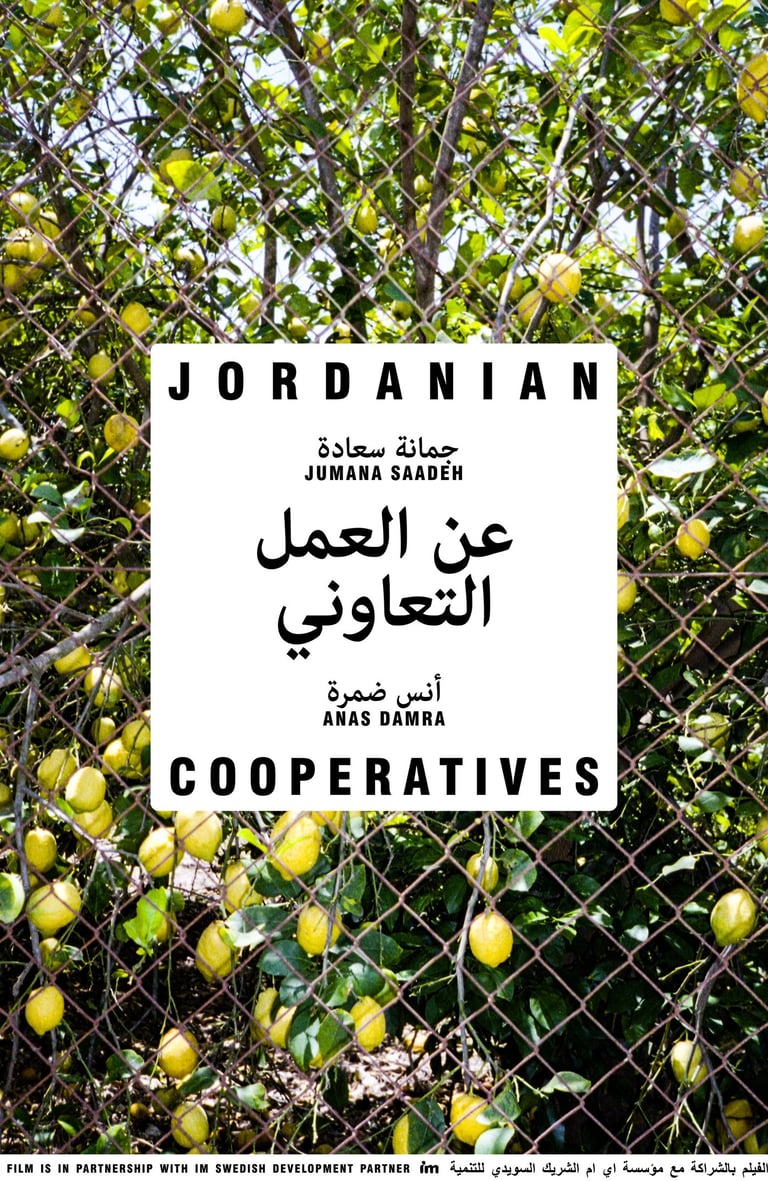

A Documentary Film
About Jordanian Cooperatives
A Personal Perspective:
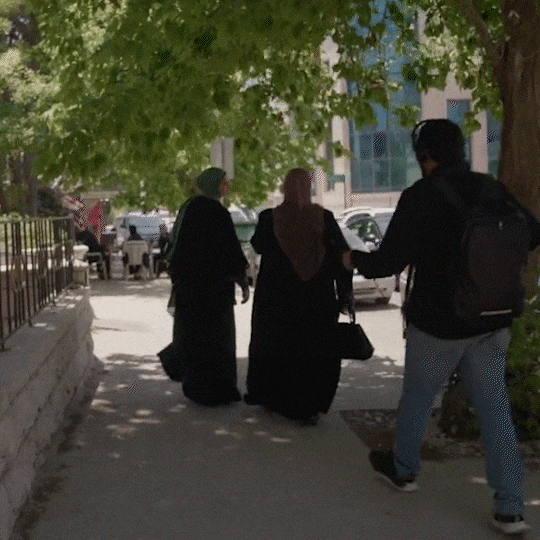

The Documentary Approach
This documentary sheds light on the challenges and opportunities women face in establishing and operating cooperative societies in Jordan. The film follows their journey over the course of a year, highlighting both their struggles and successes, and uses these insights to create dialogue and drive change. By juxtaposing personal narratives with broader structural critiques, the documentary reveals how cooperatives could redefine economic justice in Jordan—if given the space to thrive.
Following its premiere at the 15th Karama Human Rights Film Festival, the documentary sparked discussions with key stakeholders, leading to recommendations to improve women's presence in cooperative ventures.
This year, the impact campaign has taken a significant step towards establishing a unified platform for women’s lives. Building on the momentum created by the documentary, we have been working towards forming an official network or union that brings together cooperatives entirely run by women. The goal is to provide these women with a strong, collective voice, enabling them to advocate for their rights, secure better resources, and enhance the sustainability of their cooperatives.
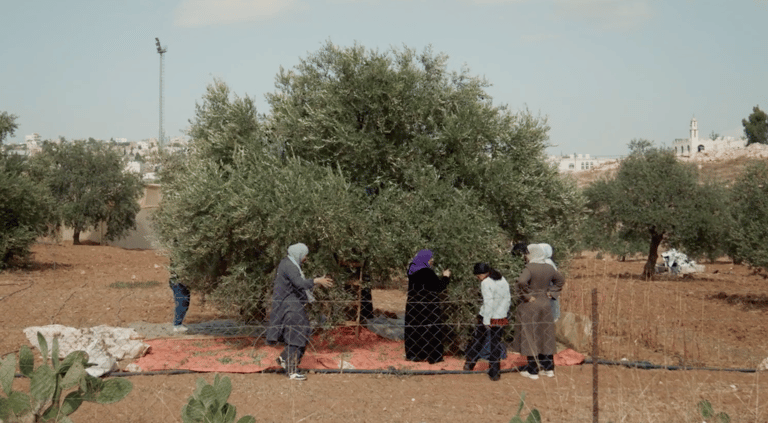

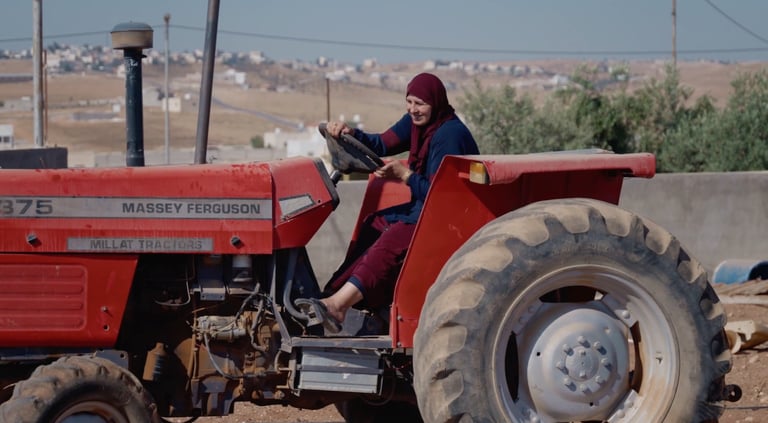

Why This Project?
At the turn of the millennium, Jordan mobilized its official institutions and media to promote microfinance as a magic solution for women’s economic empowerment, poverty alleviation, and job creation. However, this push was not purely a domestic initiative—it was the U.S. Agency for International Development (USAID) and the World Bank that breathed life into stagnant microfinance institutions by endorsing the concept and injecting the necessary funding to launch their operations.
These institutions, backed by capitalist agendas, primarily targeted the poorest segments of society, pushing them to establish small and micro-enterprises without providing minimal technical support or training. This approach led to a surge in failed businesses, trapping borrowers—especially women—in cycles of debt and default. The crisis escalated into what became known as the "female debtors’ crisis" (Al-Ghārimāt), as countless women found themselves unable to repay loans, dragged into court by the very institutions that were supposed to empower them.
Microfinance fragmented communities and marginalized collective economic efforts. Despite the number of microfinance borrowers exceeding 400,000 by the end of 2017, Jordan had only 1,481 cooperative societies—entities that remained largely unknown to the public, with little information available about their economic or social impact. Neither the state nor local civil society organizations leveraged their official or media platforms to promote this model, despite Jordan’s Cooperative Societies Law being enacted in 1997, around the same time microfinance institutions began expanding.
The 2008 financial crisis exposed the flaws of capitalist production economies and their inherent instability, sparking global interest in solidarity economics. Unlike microfinance, this model doesn’t seek to replace market economies; instead, it functions as a parallel system capable of fostering inclusive growth—where wealth isn’t concentrated solely in the hands of the elite—while reducing stark social inequalities.
The COVID-19 crisis (2019–2020) shattered countless home-based businesses in Jordan, reinforcing the failure of individual microfinance ventures. This has led to a growing interest in collective production associations as a pluralistic economic alternative. Yet, women still face financial, social, and legal barriers in establishing such underdeveloped models.
I embarked on this project because I saw how microfinance, touted as a means of empowerment, had become a mechanism of oppression for Jordanian women. The dissonance between the promise of "economic liberation" and the reality of the Al-Ghārimāt crisis demanded interrogation. Having witnessed firsthand how debt-fractured families and eroded social solidarity have affected communities, I became convinced that cooperatives represented more than an alternative economic model - they were a form of resistance. This documentary emerged from that urgency: to expose how global development paradigms fail marginalized communities, and to document women rewriting those narratives through collective action. At its core, this is a project about reclaiming agency - both for the women on screen and for audiences ready to challenge dominant economic dogmas.
Cooperatives Embody Resistance
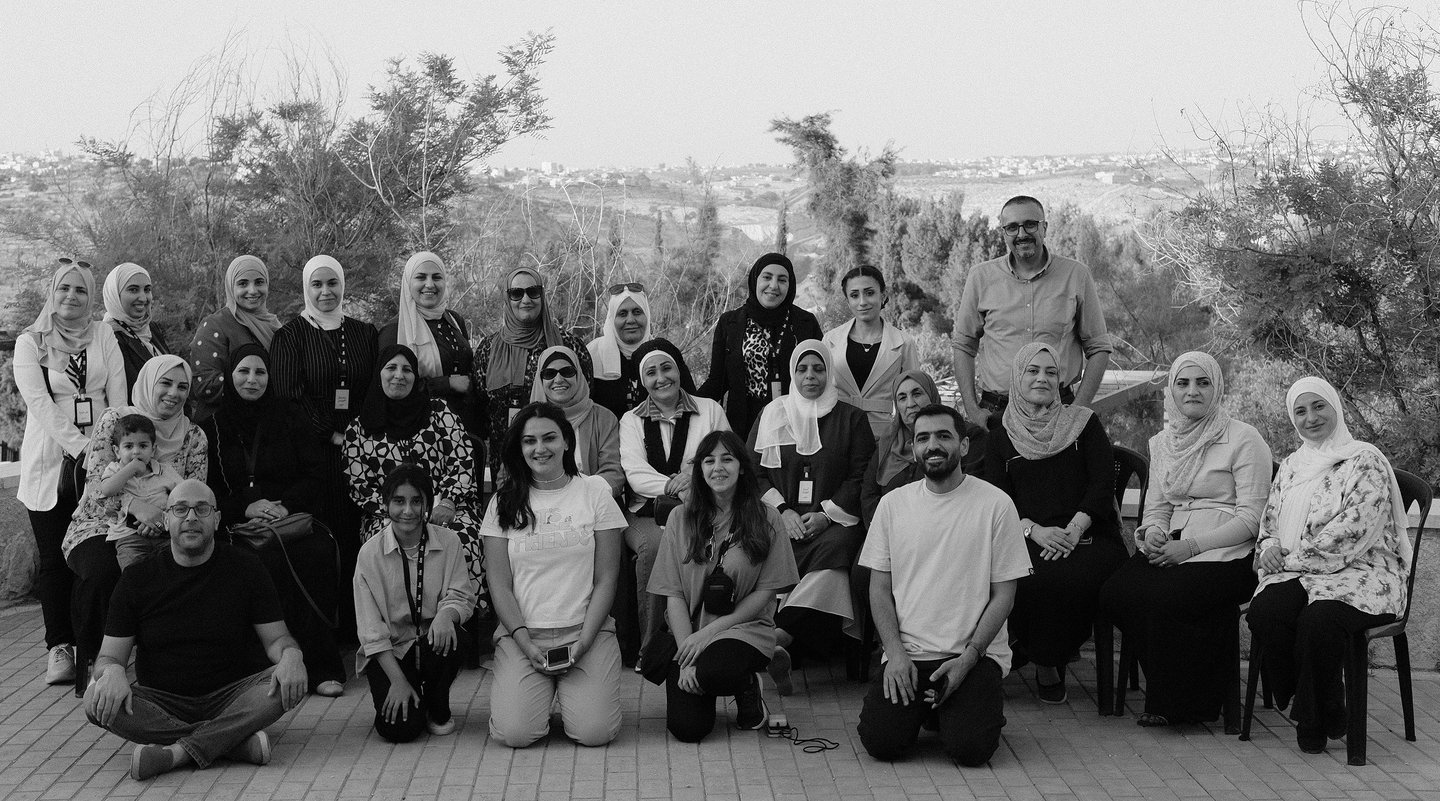

Impact campaign
Building a Unified Future: The Women's Cooperative Union
The impact campaign aims to form a leadership team to establish a union of "women-led cooperatives," while empowering the women featured in the documentary and campaign participants to use the film as a tool to mobilize as many women-led cooperatives as possible across Jordan.
Institutionalizing Women's Cooperative Power
2025 marked a pivotal step in our impact campaign, as we advanced efforts to establish Jordan’s first Women’s Cooperative Union—a unified platform designed to empower female-led cooperatives.
Building on the momentum generated by the documentary, we worked to form a network that brought together cooperatives entirely run by women. This initiative aimed to give these women a strong, collective voice, enabling them to advocate for their rights, secure better access to resources, and strengthen the sustainability of their work.
Phase One Implementation:
The impact campaign initially engaged five core partner women who will now assume leadership in expanding the network. Their primary responsibility involves outreach to the broader community of women's cooperative members and chairs across Jordan.
Must assemble one-third of the legally registered women's cooperatives in Jordan to establish the union.
Current goal: Recruit 10 additional cooperatives beyond initial partners to reach critical mass.
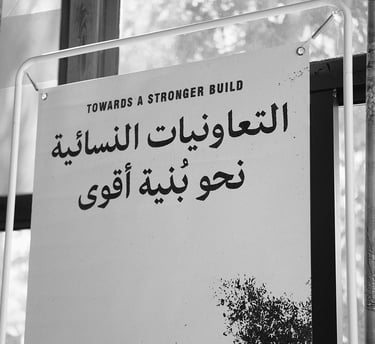

A Workshop on Impact Screenings
Filmmaker and media expert Manar Tawhied El-Zohery from Our Aflamuna Org conducted a specialized workshop on leveraging documentary films as catalysts for policy change. The session equipped the founding team of Jordan's women-led cooperative movement with strategic tools for:
Crafting Impactful Screenings
El-Zohery demonstrated how to transform Documentary Film viewings into powerful advocacy tools. Participants learned to design discussion guides that connect documentary content to specific policy demands, creating natural transitions from audience empathy to political action.
Building a Screening Campaign
The training covered logistical planning for nationwide community screenings, targeting key decision-makers through private parliamentary showings, and developing complementary advocacy materials that reinforce the film's messages.
Measuring Impact
Attendees practiced documenting audience reactions and converting viewer engagement into concrete campaign support, whether through petition signatures, testimony collection, or coalition building.
This workshop marked a turning point - the women have now fully taken ownership of the campaign, actively using the film as their strategic tool to advance their goals and drive the establishment of the union forward
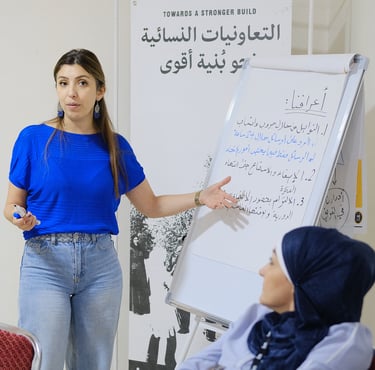

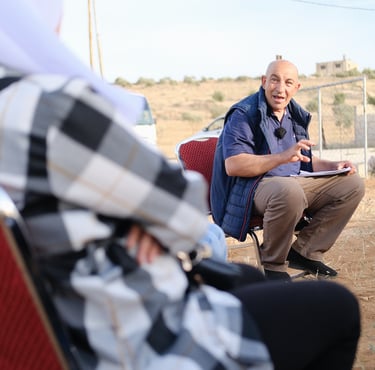

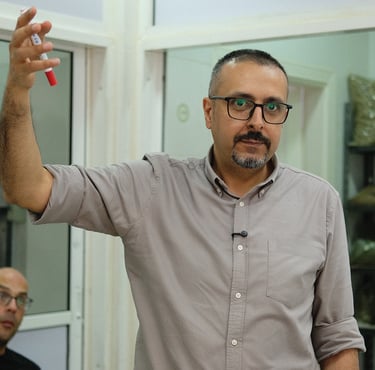

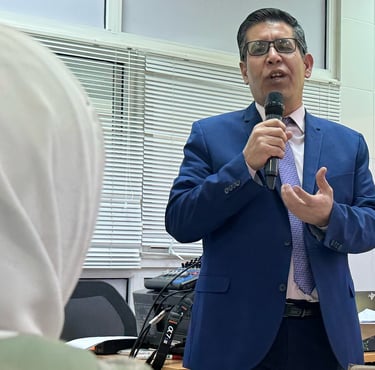

Community Organizing: Building Committed Relationships
In collaboration with Ahel Foundation, our campaign organized a specialized training workshop led by community organizing expert Noor Al-Disi. The session focused on developing accountable relationships and collective leadership to strengthen the movement for establishing Jordan's first women's cooperative union. Through interactive discussions, participants explored participatory approaches to mobilize resources and build sustainable organizing structures.
The training emphasized transforming individual efforts into collective power, equipping women leaders with tools for consensus-building and membership engagement. This marked a strategic shift from project implementation to long-term movement building, grounded in principles of mutual accountability and shared responsibility. The workshop outcomes directly informed the campaign's next steps in developing the union's foundational covenants and governance model.
Adapting Cooperative Federation Models for Jordan's Women
Riyad Abu Ghazaleh—Secretary of the Kafr Soum Pomegranate Producers' Agricultural Association—brought his wealth of knowledge to a special session for women cooperative leaders. His workshop focused on the transformative potential of federations for Jordan's women-led cooperatives, drawing from successful regional models while outlining key governance principles.
Abu Ghazaleh's presentation highlighted both the opportunities and pitfalls in federation-building, emphasizing the importance of participatory leadership structures. He guided participants through comparative case studies, helping them identify sustainable frameworks.
Empowering Women's Cooperatives Through Collaborative Models
During this session, business strategist Mohammed Al Afranji introduced groundbreaking collaborative frameworks tailored to strengthen the Women's Cooperative Union's capacity to support member associations. His presentation outlined practical approaches that leverage digital connectivity platforms to bridge cooperatives across regions, comprehensive marketing methodologies to elevate product positioning, and context-sensitive financing mechanisms tailored to Jordan's socioeconomic landscape.
The workshop inspired participants to initiate cross-governorate collaborations under the Union's umbrella. These cooperative ventures represent more than quality improvement projects - they're building blocks for a resilient, interconnected economic network that amplifies women's collective impact.
A Roadmap for Women's Cooperative Federations
Engineer Hani Al-Adwanat, Training Manager at the Jordan Cooperative Corporation, led a transformative legal capacity-building session for women cooperative leaders. His workshop served as both a compass and a toolkit for navigating Jordan's cooperative legislation, explicitly focusing on the procedural pathways for establishing new federations under Cooperative Law and its implementing regulations.
Through case-based learning, Al-Adwanat illuminated the complete registration lifecycle - from initial documentation submitted to the Ministry of Social Development through to final approval mechanisms. The session notably clarified the dual nature of membership obligations and privileges, demonstrating how federations could leverage their legal status to negotiate better financing terms and policy influence while maintaining compliance.
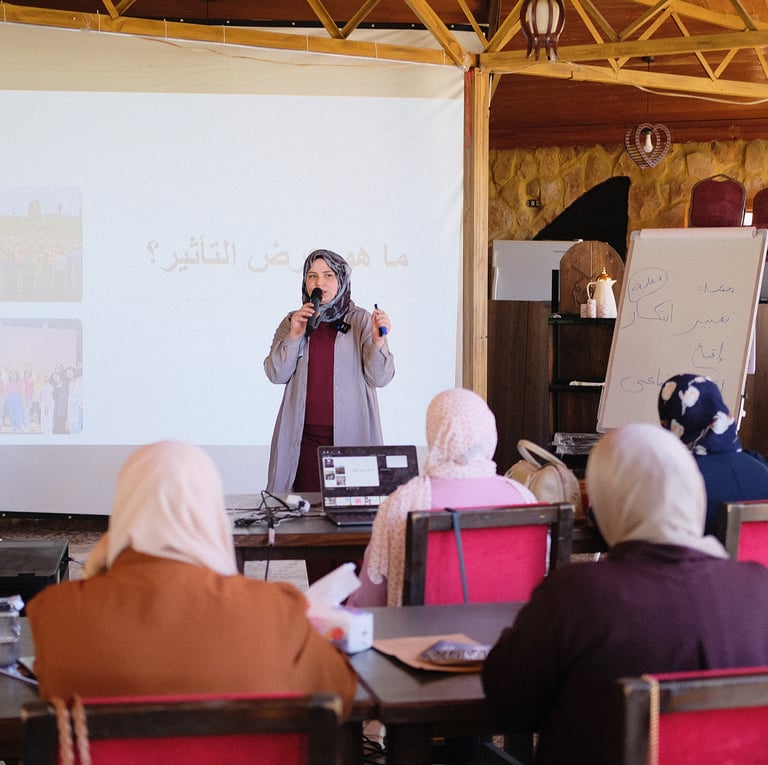

Policy Development & Institutional Advocacy
In collaboration with the Information and Research Center, we conducted qualitative analysis of interviews with ten women's cooperatives, culminating in a formal policy paper. This paper recommends establishing Jordan's first Women's Cooperative Union and proposes amendments to Jordan's cooperative laws, which currently lack explicit provisions for women's unions.


Building on the policy paper and community organizing efforts, the Jordanian Cooperative Corporation formally adopted the campaign’s recommendations. On August 27, 2025, the Corporation’s Director General met with four women cooperative leaders and the film’s production team to officially discuss creating a specialized Women’s Cooperative Union.
The Cooperative Corporation expressed full support for establishing the first Women’s Cooperative Union in Jordan, marking a historic breakthrough in the country’s cooperative movement.
Both sides agreed to work closely together. The Corporation will facilitate nationwide screenings of the documentary across all governorates to mobilize women-led cooperatives and encourage them to join the Union.
The Corporation also pledged to use its institutional expertise to empower women cooperative leaders. It will organize capacity-building trainings on collaborative governance and union structures to ensure the Union grows into a strong and effective entity.
In addition, the Corporation committed to providing ongoing advisory services to the founding members, reinforcing the partnership as the Union moves toward official registration and long-term sustainability.
